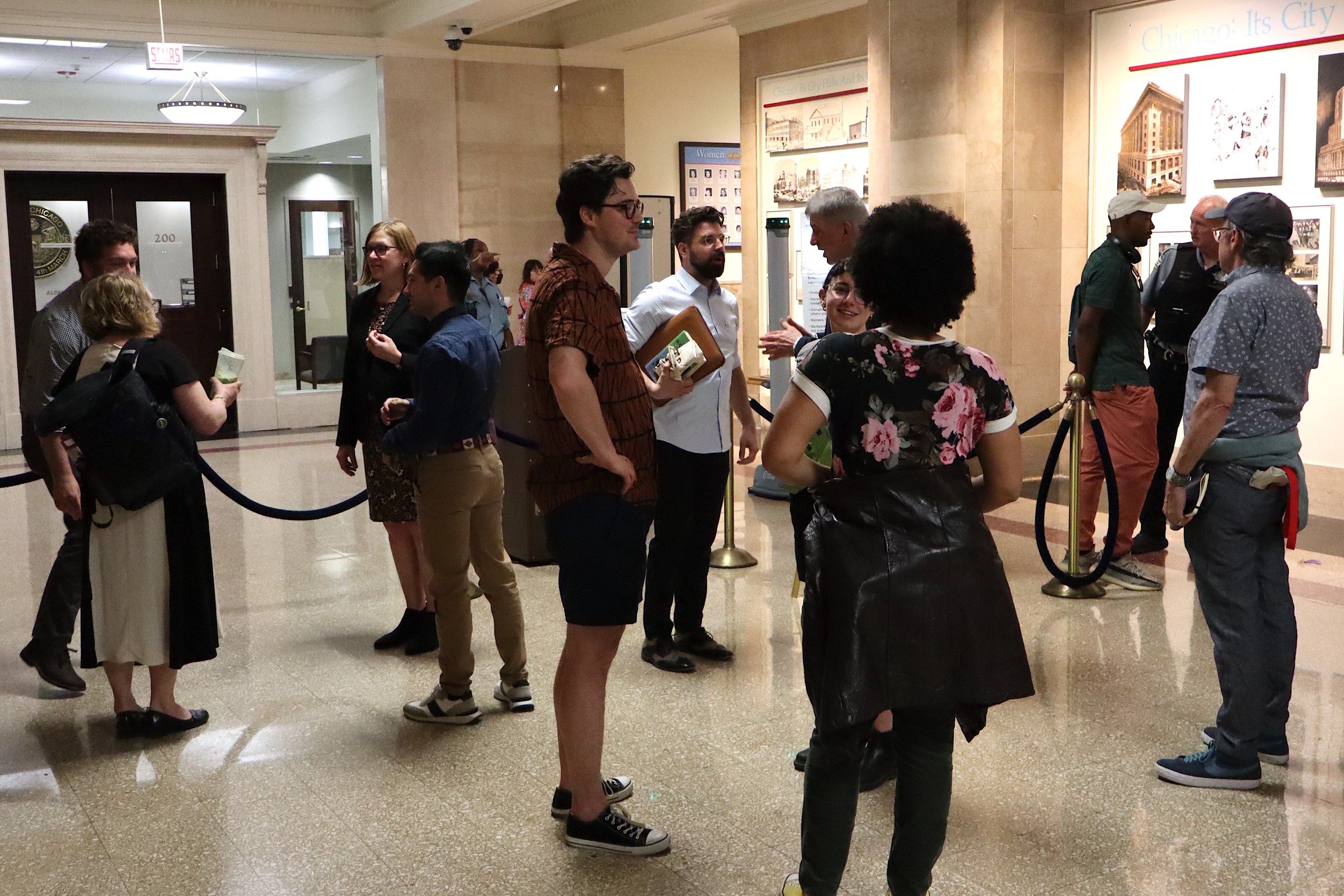The death of five-year-old Daniela Chavez, and injury of seven other people, including five children, last Sunday morning at 43rd and Western was a stark case of a tragedy caused by a driver’s decision to disobey a red light.
According to authorities, at about 10:25 a.m. the driver of a Ford Focus ran the light at the intersection, colliding with a Ford SUV. Daniela Chavez was a passenger in the Focus, along with three other girls, aged 13, 15, and 16. Chavez later died from her injuries and the other teens were list in good condition.
Four occupants of the SUV were also hospitalized, including a 32-year-old man listed in serious condition, as well as two boys, 7 and 11, and a 35-year-old man.
The 41-year-old woman who was driving the Focus declined medical attention and was cited for failing to obey the red and yield in the intersection, according to an ABC Chicago report. According to Police News Affairs, as of Tuesday no additional charges had been issued.
In response to this horrific case, Sun-Times columnist Mary Mitchell wrote a persuasive piece explaining that, while drivers like herself dislike automated traffic enforcement, it plays a key role in preventing these kinds of tragedies. “I detest those red-light and speed camera violations as much as anyone — well, maybe not as much as the group Citizens to Abolish Red Light Cameras,” she wrote. “Still, I’d hate for us to end up like Milwaukee.”
She said she visited Milwaukee frequently this summer as she visited her ailing mother, and witnessed truly terrifying driver behavior. In that city authorities say there is an epidemic of red light running, and injury crashes spiked more than 25 percent between 2012 and 2017.
Then Mitchell discussed the death of Daniela Chavez. If the female driver of the Focus was a relative, we should feel empathy for her loss, but the columnist rightly noted that the driver is squarely to blame for this senseless death. “I hesitate to call this an accident because if the woman saw that the red light and drove into the intersection anyway, that’s not an accident. That’s reckless driving and should be treated like a crime.”
Mitchell noted that many Chicagoans dislike red light cameras because they assume that the cams are there to generate revenue for the city, rather than promote safe driving. She also pointed out that the flat $100 fines are regressive – they’re a much bigger burden for low-income residents than affluent ones. (Other cities and countries have made traffic fines more equitable by providing the option of traffic school or community service, or charging sliding-scale fees.)
As such, Mitchell wrote, the cameras have become a political football. When Cook County commissioner Chuy Garcia challenged Mayor Rahm Emanuel in 2015, he promised to shut down the red light program on his first day in office. Current candidates Willie Wilson and Troy LaRaviere also say they want to end the program.
“That’s not necessarily a good idea,” Mitchell opined. “A $100 ticket is a strong motivator.” She noted that from 2005 to 2016 all types of crashes were down at intersections with red light cams, with T-bone crashes down 66 percent, according to the Chicago Department of Transportation.
Mitchell pointed out that a surge in traffic ticketing by Milwaukee police officers in high-crime neighborhoods has helped lower crash rates in that city, but that approach would likely face opposition in Chicago due to our well-documented problems with police abuse. Another benefit of automated enforcement is that it eliminates the possibility of racial profiling by officers. (However, it's important that communities of color that have historically been targeted with car-centric urban planning that encourages speeding don’t get a disproportionate number of cams.)
“We can’t let reckless driving become a trend,” Mitchell concludes. “Frankly, I don’t feel sorry for motorists that wrack up stacks of red-light violations. Instead of getting rid of cameras, a lot more of us need to practice what we learned in kindergarten.”
Mitchell got to the crux of the issue: While nobody likes to get punished for traffic violations, automatic enforcement is helping to prevent more heartbreaking incidents like the Daniela Chavez case.

Did you appreciate this post? Consider making a donation through our PublicGood site.




